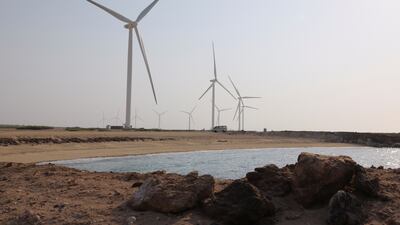Amid a weakening global economy, elevated geopolitical uncertainty, erratic global supply chains and a climate crisis, societies and ecosystems worldwide are often the victims, paying the highest price in uncertain times.
This is partly due to an inadequate solutions that lack creativity from policymakers, the private sector and the people that make the money go around: banks and financial institutions.
Events such as the 2023 Annual Meetings of the World Bank and International Monetary Fund are opportunities for some of the world’s leading thinkers to come together and attempt to find solutions.
Key among the stakeholders involved are the banks, who have a critical role to play – because it is through the prism of environment, social and governance (ESG)-related financial services and investments that they can substantially contribute to the conversation and the solution to this issue.
ESG-linked instruments can finance and support practical changes to how the world’s natural resources are utilised while introducing regional businesses and corporations to a new world of sustainability-linked financial services.
Financial institutions also provide a greater choice for investors, helping them re-evaluate approaches to securing sustainable long-term gains.
As banks including Mashreq are increasingly making ESG an integral part of their financing and investment strategies. they are expanding their offerings, financing sustainability-linked and transition energy projects with products such as green bonds or loans.
Banks are also broadening their suite of sustainable finance services, integrating sustainability across multiple product lines – including lending both direct and for supply chains, insurance and investment.
For financial institutions – whether through trade finance, green bonds or sustainability-linked loans – it is critical to provide a breadth of opportunities that help developers, businesses and governments to support the real-world needs of communities today and in the long term.
Investments in renewables or project financing may not make an immediate difference today, but they may deliver long-term benefits – and therefore, they are worthy of sustainability-linked financing.
To play an active role in supporting economic resilience today, the banking sector must focus on a breadth of opportunities including sustainable infrastructure development, green finance and impact investments centred around education, housing and social well-being. The aim should be mobilise capital flows into projects that support the sustainable transition while remaining bankable and profitable.
Currently, the climate-related development financing falls far short of the projected needs. The combined contributions from bilateral sources, multilateral development banks and development finance institutions represent less than 1.5 per cent of the required funds.
While the $93 billion replenishment of the World Bank's fund for the poorest countries back in 2021 was a significant step, there is an urgent need for banks to utilise their expertise and resources to use financing for renewable energy projects.
This is a window of opportunity that financial institutions must embrace and commit to.
There are examples of that in the Mena region already. Bahrain has been focusing on converting its energy extraction from fossil fuels to low-carbon sources. Bapco Energies, the energy investment and development arm of the kingdom, has worked with Mashreq for its sustainability-linked loan. The initial target was $1.6 billion, however, the deal was two times oversubscribed and ended up raising $2.2 billion, becoming the largest such transaction in the region.
Mashreq aims to finance and facilitate $30 billion in sustainable financing by 2030 and the bank has already facilitated $1.3 billion in water-related projects. One of such projects is the Abu Rawash Wastewater Treatment Plant, which will directly benefit more than 8 million people and has already created 1,600 jobs, with 20 per cent taken by women. Another example is Egypt's New Alamein wastewater treatment plant, which aims to serve a population of more than 3 million.
The banking sector’s role in driving sustainable finance to build economic resilience can be significantly enhanced by working closely with government institutions and industry leaders on a global scale.
Together, the public and private sectors can explore the financial levers needed to boost the energy transition and the financing mechanisms needed to improve the bankability of sustainable projects, as well as unlock the investments needed to decarbonise economies.
The way these deals and projects are structured is vital to attracting new pockets of liquidity, and we have witnessed some interesting developments on that front. For instance, project bonds offer an alternative for project refinancing and are being increasingly used to refinance clean energy programmes. Project finance is essential to moving this sector forward, but regulatory and policy improvements must keep pace if project finance benefits are to be fully realised.
In the spirit of collaboration underpinning the World Bank and IMF event just weeks ahead of Cop28, we must embrace international co-operation and partnerships, not only on finance flows but also on policies, new business models as well as regulatory practices.
This can be reinforced through public-private partnerships involving governments, regulators and multilateral, regional and national development banks, which can play a significant role in promoting sustainable finance by assisting the market in allocating resources in a more sustainable manner and by strengthening the capacity of the private sector to do so.
Joel Van Dusen is group head of corporate and investment banking at Mashreq







